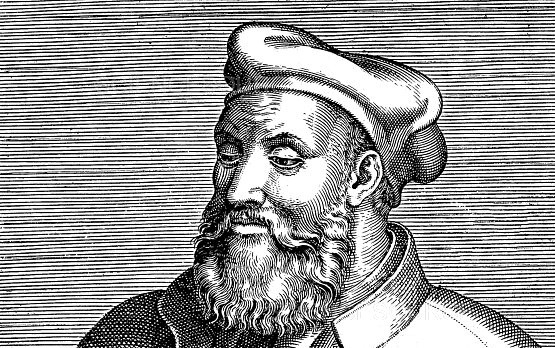Humanist jurist philosopher: Who is Andrea Alciati?
Despite his opposition to ex-communication, superstition, and any authority based on violence, he never renounced Catholicism.

(1492-1550) Italian jurist. He is one of the leading representatives of the Humanist movement that emerged in the 16th century in the field of legal philosophy. He was born on May 18, 1492, in Alzate, near Milan. In 1518 he became a professor at the University of Avignon. He taught law in various cities in Italy and France, as well as at the universities of Milan, Bourges, Pavia, and Bologna. In a short time, his fame spread all over Europe, and reformist religionists and scientists from various countries joined the audience of these lectures. Alciati was closely involved with the Reformation and Renaissance movements and maintained constant relationships with leading reformers such as Erasmus, Thomas More, Calvin, and Zasius. While admiring Luther's innovation and courage, he did not fail to criticize his methods of struggle. Despite his opposition to ex-communication, superstition, and any authority based on violence, he never renounced Catholicism. He died in Pavia.
Alcıati is among the representatives of the Humanist Law School along with Cujas and Zasius. According to humanists, who see the human element as the center of their interests, there is only one law that applies to all people. The main source of this universal law is Roman law. Since the starting point of the corpus juris civilis (Civil Code) in Roman law was natural law, humanists did not feel the need to develop their own natural law teachings in legal philosophy. The school they represent has two distinctive features: first, to return to the basic original works of the philosophy of law; second, to examine the historical development of law.
As a humanist, Alciati is one of the first lawyers to examine Roman law in the light of philology, history, and ancient literature, and to convey documents in their original form without any interpretation. His work is the product of rigorous scrutiny, and a critical and objective approach. The main aim of Alciati was to explain Roman law in its true meaning and application. Alciati, who relies on original documents in his works, has dealt with legal events and problems not with an analytical approach, but with a historical and comparative approach.
Alciati argued that a jurist should not limit himself to law alone, but should also be interested in history, philology, literature, political science, and other related disciplines. In the process of searching for the truth, he defended knowledge and free thought against dogmatic authority and irrational tradition and described lawyers as clergy working in the service of justice. In this respect, Alciati is a typical thinker of the transition period in which religious and secular elements coexist in the transition from the religious thinking of the Middle Ages to the secular and scientific thinking of the New Age. His innovations in legal science led to the collapse of the old school of commentators and became the mainstay of Cujas' thought.
